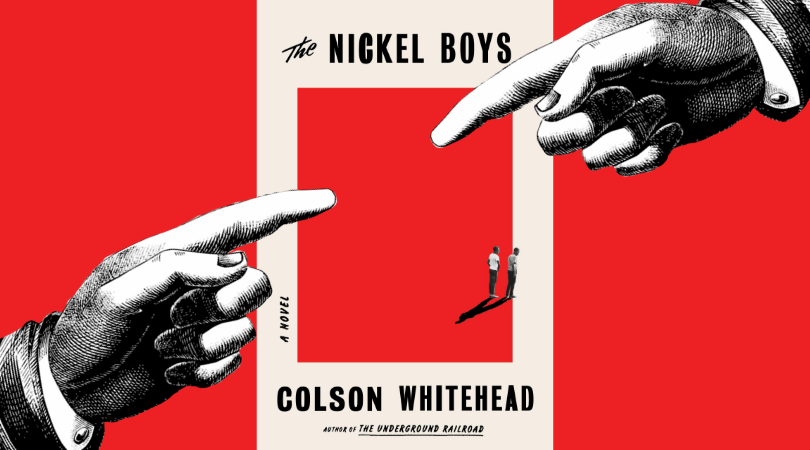
There are few things the literary community relishes more than the appearance of a polarizing high-profile book. Sure, any author about to release their baby into the wild will be hoping for unqualified praise from all corners, but what the lovers of literary criticism and book twitter aficionados amongst us are generally more interested in is seeing a title (intelligently) savaged and exalted in equal measure. It’s just more fun, dammit, and, ahem, furthermore, it tends to generate a more wide-ranging and interesting discussion around the title in question. With that in mind, welcome to a new series we’re calling Point/Counterpoint, in which we pit two wildly different reviews of the same book—one positive, one negative—against one another and let you decide which makes the stronger case.
Colson Whitehead is one of the most versatile and talented storytellers at work today. From autobiographical coming-of-age comedy to post-apocalyptic zombie fiction, he has done it all. He also won both the Pulitzer Prize and the National Book Award for his 2016 novel, The Underground Railroad. (Missed this? Been living under a rock? Don’t worry: you can read an excerpt here.) The Nickel Boys, published earlier this month, is his seventh novel and tells the harrowing story of two black teenage boys trying to survive the horrors of an inhumane Jim Crow-era reform school.
By our count, over three dozen critics have weighed in on the novel, and the vast majority of them can’t say enough good things about it. Ron Charles raves about it over in The Washington Post: “Whitehead reveals the clandestine atrocities of Nickel Academy with just enough restraint to keep us in a state of wincing dread. He’s superb at creating synecdoches of pain,” while Frank Rich in The New York Times Book Review praises the way Whitehead “applies a master storyteller’s muscle not just to excavating a grievous past but to examining the process by which Americans undermine, distort, hide or ‘neatly erase’ the stories he is driven to tell.” The novel has also struck a chord across the pond, with The Guardian‘s Aminatta Forna admiring how Whitehead “demonstrates to superb effect how racism in America has long operated as a codified and sanctioned activity intended to enrich one group at the expense of another.”
Amidst the whirlwind of praise, however, there is one (one!) adamantly dissenting voice. Clive Davis of The Times (UK) acknowledges his odd-man-out opinion, saying “[The Nickel Boys‘] flaws are so glaring that I can’t help wondering if it is time to start administering drugs tests to book reviewers.” Today, we’re pitting Davis’ scathing review against Parul Sehgal’s The New York Times rave (“The narration is disciplined and the sentences plain and sturdy, oars cutting into water. Every chapter hits its marks”).
Reader, what do you think?
*
Even in death the boys were trouble.
“The Nickel Boys—a tense, nervy performance—is even more rigorously controlled than its predecessor. The narration is disciplined and the sentences plain and sturdy, oars cutting into water. Every chapter hits its marks. Even if your prose taste runs to curlicue and adornment (mine does), the restraint feels significant. Whitehead comports himself with gravity and care, the steward of painful, suppressed histories; his choices on the page can feel as much ethical as aesthetic. The ordinary language, the clear pane of his prose, lets the stories speak for themselves … while Whitehead is frank about the barbarity his characters endure, there are few scenes of explicit violence—most of it happens offstage. And none of the violence is exaggerated. A reverence for the victims can be detected in this refusal to sensationalize their suffering … Whitehead has written novels of horror and apocalypse; nothing touches the grimness of the real stories he conveys here, of a cinder-block building that still stands, a school that was closed only eight years ago. Its starkness and irresolution recalls the historian Yosef Hayim Yerushalmi’s point that the opposite of forgetting is not merely remembrance. It is justice.”
–Parul Sehgal (The New York Times)
“…possesses even less substance than its predecessor. Its flaws are so glaring that I can’t help wondering if it is time to start administering drugs tests to book reviewers … Elwood is so inert and self-effacing, in fact, that you have trouble believing in him as a character at all. Rather, he resembles some cipher concocted for a debating school contest over the viability of non-violent resistance … to make such an unremittingly bleak episode work as a novel, you need some stylistic flair. He instead opts for colourless, clunking prose that at first seems to be evoking the bland, bureaucratic machinery of the prison administration. Over the course of a couple of hundred pages, though, it reminds you of some well-meaning but incompetent attempt to translate a foreign language into English … Towards the end, a plot twist renders Elwood’s fate even more poignant. By then, though, it is hard to care either way. Given that the novel is based on true events, that is a damning conclusion. Perhaps we shouldn’t be surprised if The Nickel Boys makes a splash, however. If misery memoirs are still good for business, so are novels that paint the African-American experience in the bleakest colours imaginable.”
–Clive Davis (The Times (UK))
Can’t get enough of Colson Whitehead? Read an interview with him over on Lit Hub.

